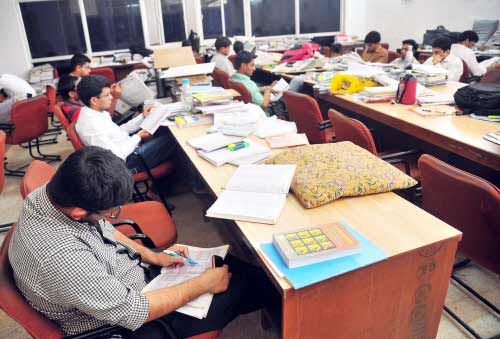 New Delhi, Mar 16: OBCs earning over Rs 6 lakh annually will not be eligible for reservations in jobs and education with a group of ministers on Friday deciding to raise the 'creamy layer' bar from Rs 4.50 lakh as part of the revision done every four years.
New Delhi, Mar 16: OBCs earning over Rs 6 lakh annually will not be eligible for reservations in jobs and education with a group of ministers on Friday deciding to raise the 'creamy layer' bar from Rs 4.50 lakh as part of the revision done every four years.
The increase, however, marks a setback for the 'backward lobby' of ministers that blocked the proposal for fixing creamy layer at Rs 6 lakh in the Cabinet last June, arguing it did not reflect the fall in value of currency and inflation. 'Creamy layer' is the income limit beyond which OBCs are not eligible for quotas.
A group of ministers headed by P Chidambaram is learnt to have weighed in favour of retaining the income level suggested by social justice ministry that ran into resistance in the Cabinet last year. It included HRD minister Pallam Raju, social justice minister Selja and MoS in PMO V Narayanasamy.
While there were murmurs that the bar be raised further, the finance minister argued that keeping the quota net too high would crowd out the genuinely poor and the needy among backwards.
The higher the income ceiling, more the people would qualify for reservations with a greater inclusion of affluent sections. It is seen to disadvantage the poor among OBCs.
While the creamy layer would be final only once approved by the Union Cabinet, Narayanasamy's presence in the GoM suggests a sense of finality.
Narayanasamy, along with petroleum minister Veerappa Moily and overseas Indian affairs minister Vayalar Ravi, had opposed the Rs 6 lakh proposal in the Cabinet, saying it be at least Rs 7 lakh. The resistance forced the prime minister to refer the issue for consultations.
The Chidambaram-led ministerial panel's move to keep a "uniform Rs 6 lakh salary bar" is way below the recommendation made by National Commission for Backward Classes that it should be Rs 12 lakh in urban areas and Rs 9 lakh in rural areas.
The social justice ministry is learnt to have rebuffed NCBC on various counts. It argued against dual creamy layer for rural and urban areas, and questioned the panel for not doing due diligence.
The income ceiling was introduced at Rs 1 lakh in 1993 and was revised to Rs 2.50 lakh in 2004 and Rs 4.50 lakh in 2008.
As against NCBC's suggestion of Rs 12 lakh that reflected Mandal satraps' long-held aversion for the concept of creamy layer, the Centre seems to have been deterred by the backlash of a huge hike.
While there can be judicial challenge arguing that setting the bar too low is designed to neutralize the income ceiling, there are fears in the ruling dispensation that quota for rich OBCs would lead to demands from upper castes that their poor too be given reservations.






Comments
Add new comment